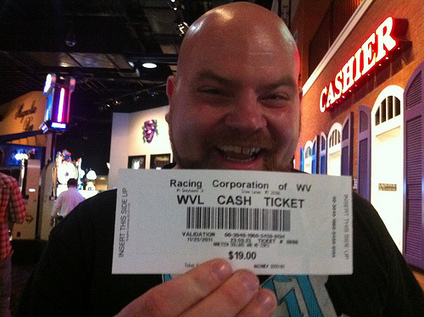You’ll settle—for happiness.
You win some, you lose some. You get the perfect job—the one your heart is set on. Or you get snubbed. You win the girl (or guy) of your dreams—or you strike out.
But what if you win and lose at the same time? You land a good job—but not a great one. Or you do get a hot new partner—but not the one you wanted?
A study published in an upcoming issue of Psychological Science, a journal of the Association for Psychological Science, says you’ll find a way to be happy anyway.
“Good outcomes have relative value and absolute value, and that affects our happiness,” explains Carnegie Mellon assistant professor Karim S. Kassam, who conducted the study with Carnegie colleague Carey K. Morewedge, Daniel T. Gilbert of Harvard University, and Timothy D. Wilson of the University of Virginia.
Winners vs. Losers
Winner: you get the best, relative to the alternatives. You’re happy regardless of the prize’s absolute value.
Loser: you win something less valuable than the alternative. You may at first be disappointed, but you usually come around. “People are motivated to think about things in the best possible light,” says Kassam. So you move on to reflect on the absolute value, and find satisfaction there.
Think Harder to Find Happiness
The hypothesis is that “losers” think harder to find happiness.
In four trials, 31 participants were asked to memorize either a two- or an eight-digit number and choose one of two boxes with prize amounts ($3 or $5) inside. At the end, they’d receive the amount in one of their chosen boxes. Unknown to the participants, the design made them all losers—they’d always pick the lesser amount. The combinations of memory difficulty aka “cognitive load” and cash received ($3 or $5) varied. In each trial, participants rated their feelings.
Larger prizes made these losers happier—but only when they had enough brainpower to think about it. Under higher cognitive load, they were glad to get either amount.
“When you win something, it’s always a positive experience,” says Kassam. “But if there’s this tinge of negative affect, that motivates people to rationalize, to reframe things in a way that will make them happy.”
Thus, even if you can’t do that extra thinking, you’ll settle—for happiness.
Image: ![]() Some rights reserved by Penningtron
Some rights reserved by Penningtron

